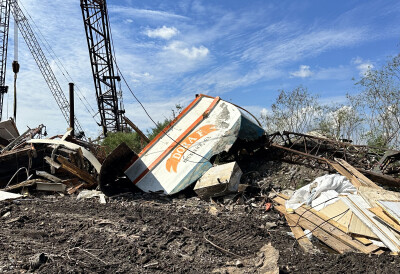The Arctic Ocean and the northern Pacific Ocean, along with Antarctic waters, are acidifying faster than the rest of the world’s marine waters, a new National Oceanic and Atmospheric Administration-led study finds.
The study, which analyzed measurements from thousands of monitoring stations across the globe, found these bodies acidified faster as carbon dioxide absorbed from the atmosphere combines with natural sources of carbon swept into them by marine currents and held fast by low temperatures.
Ocean acidification is the chemical transformation seawater undergoes as it absorbs and stores more carbon. The increasingly acidic water more easily dissolves the calcium carbonate from which many marine species make their shells -- affecting not only commercially important shellfish, such as oysters and clams, but also smaller creatures, such as tiny pteropods, upon which marine food webs depend. That could upend entire ecosystems, harming other important species, including salmon.
Read the full story at Alaska Dispatch News >>
Read more about climate change >>






